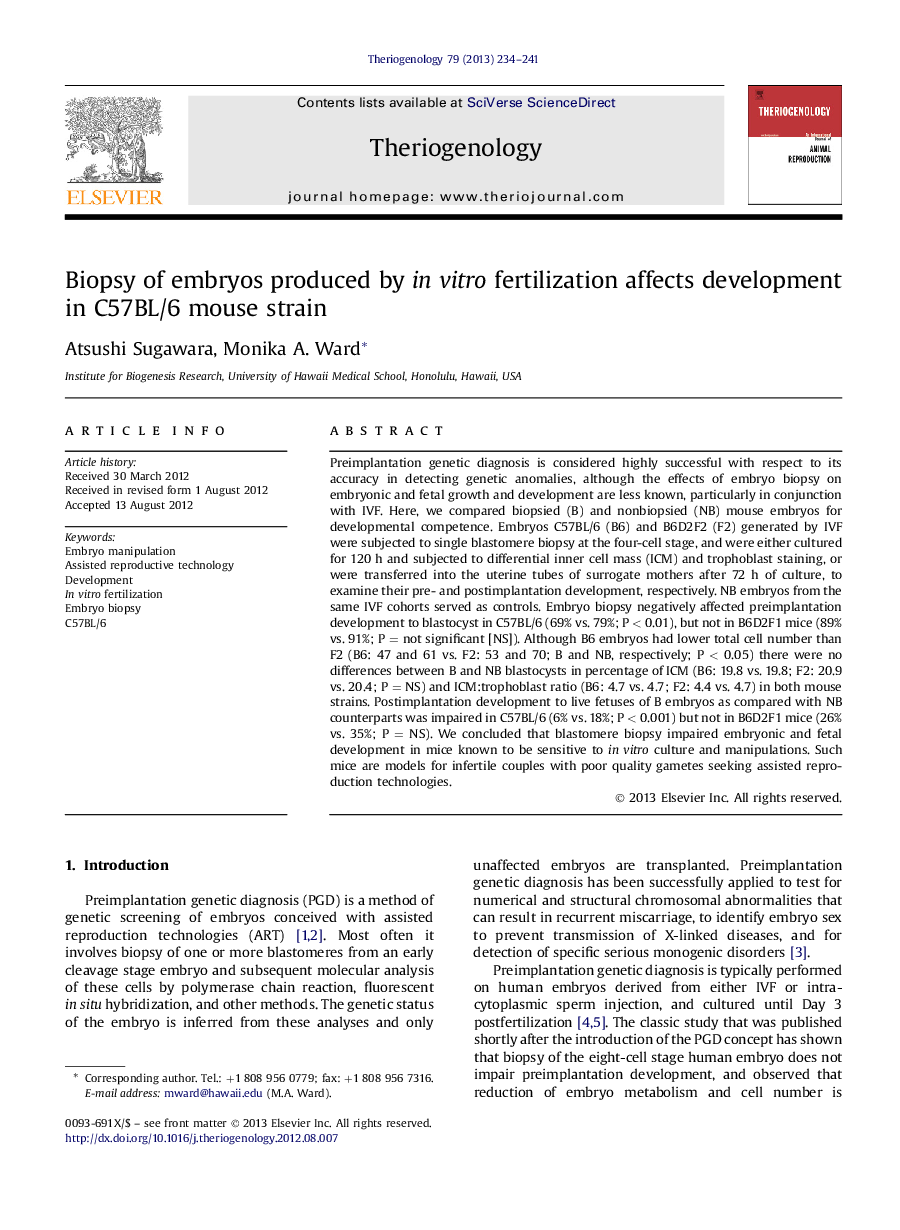| Article ID | Journal | Published Year | Pages | File Type |
|---|---|---|---|---|
| 10892151 | Theriogenology | 2013 | 8 Pages |
Abstract
Preimplantation genetic diagnosis is considered highly successful with respect to its accuracy in detecting genetic anomalies, although the effects of embryo biopsy on embryonic and fetal growth and development are less known, particularly in conjunction with IVF. Here, we compared biopsied (B) and nonbiopsied (NB) mouse embryos for developmental competence. Embryos C57BL/6 (B6) and B6D2F2 (F2) generated by IVF were subjected to single blastomere biopsy at the four-cell stage, and were either cultured for 120 h and subjected to differential inner cell mass (ICM) and trophoblast staining, or were transferred into the uterine tubes of surrogate mothers after 72 h of culture, to examine their pre- and postimplantation development, respectively. NB embryos from the same IVF cohorts served as controls. Embryo biopsy negatively affected preimplantation development to blastocyst in C57BL/6 (69% vs. 79%; P < 0.01), but not in B6D2F1 mice (89% vs. 91%; P = not significant [NS]). Although B6 embryos had lower total cell number than F2 (B6: 47 and 61 vs. F2: 53 and 70; B and NB, respectively; P < 0.05) there were no differences between B and NB blastocysts in percentage of ICM (B6: 19.8 vs. 19.8; F2: 20.9 vs. 20.4; P = NS) and ICM:trophoblast ratio (B6: 4.7 vs. 4.7; F2: 4.4 vs. 4.7) in both mouse strains. Postimplantation development to live fetuses of B embryos as compared with NB counterparts was impaired in C57BL/6 (6% vs. 18%; P < 0.001) but not in B6D2F1 mice (26% vs. 35%; P = NS). We concluded that blastomere biopsy impaired embryonic and fetal development in mice known to be sensitive to in vitro culture and manipulations. Such mice are models for infertile couples with poor quality gametes seeking assisted reproduction technologies.
Keywords
Related Topics
Life Sciences
Agricultural and Biological Sciences
Animal Science and Zoology
Authors
Atsushi Sugawara, Monika A. Ward,
